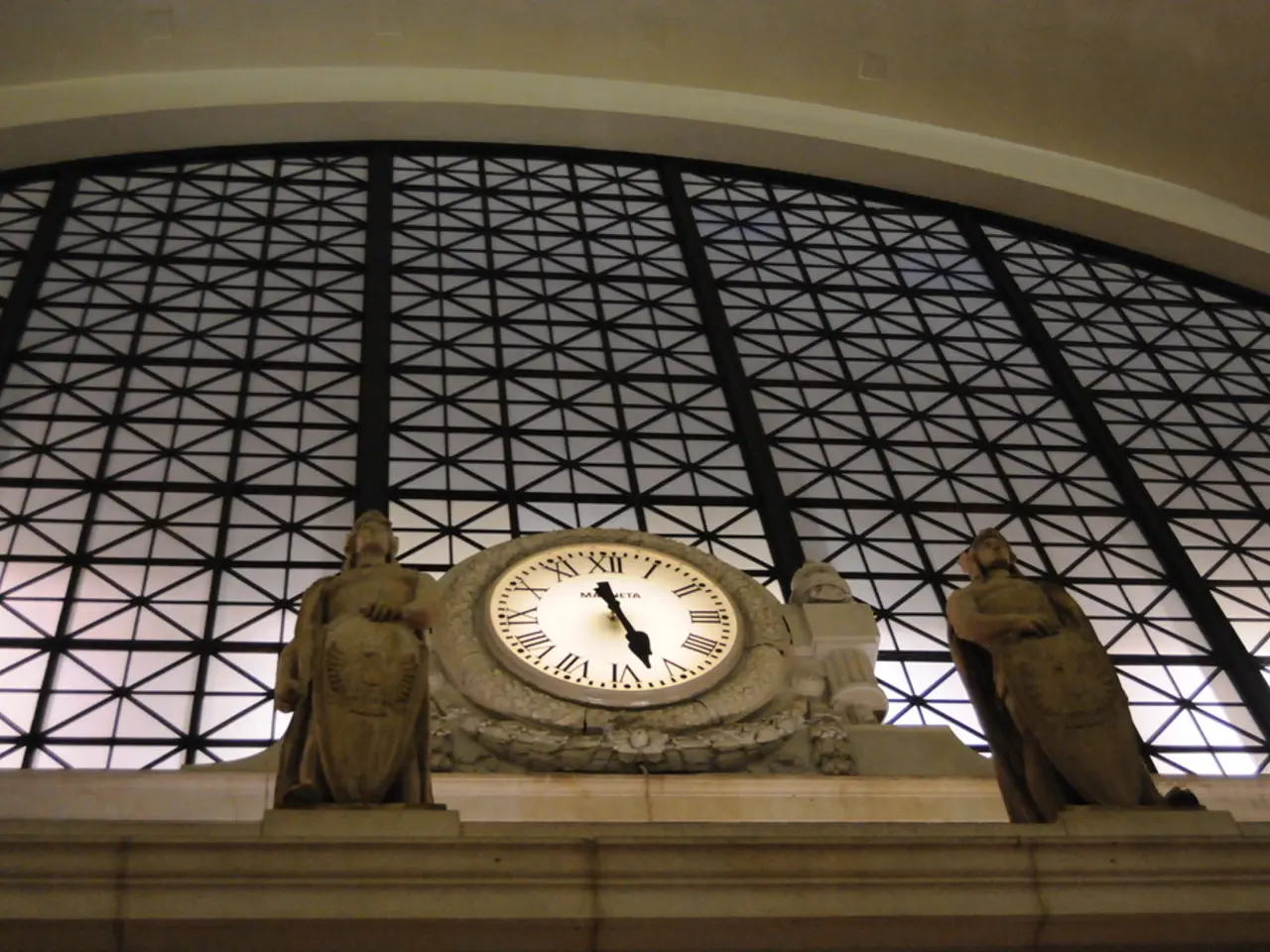Clock Owners' Viewpoint on Intervention: First Part - Discussing Preservation, Restoration, and Consumption
In the world of clock collecting, a dilemma lies at the heart of the hobby: whether to preserve, restore, or consume an antique or vintage clock. This is the central theme of a two-part blog post series, which delves into the pros and cons of each approach and the factors that influence the decision.
The series, titled "Preserve, restore and/or consume - A clock owner's perspective on intervention," begins with Part I, published earlier this week. This part focuses on the decision to make changes to a clock that is less than desirable in condition.
Preserving and restoring have distinct advantages and disadvantages that affect a clock's historical value and potential market worth. Preserving maintains a clock's historic authenticity but may limit function and appeal to a niche market. On the other hand, restoring enhances operability and broad market appeal but can diminish historical integrity if done excessively or incorrectly.
| Aspect | Preserving | Restoring | |---------------------|-------------------------------------------------------|--------------------------------------------------------| | Historical Value | Preserves original materials, craftsmanship, and patina, reflecting true age and authenticity—highly valued by historians and some collectors. | Can involve replacing or repairing original parts, which may reduce authenticity if not done sensitively; however, it maintains the clock's function and appearance. | | Market Worth | Often valued higher by purist collectors who prize originality; can appeal to museums and serious collectors. | Restored clocks may fetch better prices among general buyers due to improved functionality and aesthetics, but over-restoration can harm value. | | Functionality | Original mechanisms may degrade or stop working; preserving often means accepting original wear and tear. | Restoring improves reliability and usability, making the clock suitable for regular use or display with operational timekeeping. | | Risks | Risk of deterioration if neglected or no maintenance is done; original materials can decay irreversibly. | Risk of diminishing value if restorations are too extensive, inaccurate, or use non-original components. |
Preservation involves minimizing future deterioration, and the environment the clock is in should be considered. Small measures such as cleaning may be sufficient for preserving a clock with little damage or wear. However, when a clock is not in excellent condition, it may require major remediation or at least minor adjustments.
Clocks over 100 years old often survived in harsh environments due to the difficulties of heating homes, controlling humidity, and other factors. Therefore, preservation should also consider these historical factors to ensure the clock's longevity.
The solution to preserve or restore a clock might not be the only factor to consider, as technical limitations of the collector, cost, and time are also important factors. The term minimal invasive intervention refers to the delicate decision-making process regarding how much work should be done to repair, restore, or conserve a clock without significantly altering its original character.
Part II of the series, to be published later this week, will explore the movement and the case of the clock, providing valuable insights for those navigating the world of antique clock collecting. Whether prioritizing museum-level conservation or functional display in a private collection, understanding the pros and cons of preservation and restoration is crucial for any clock collector.
- Apart from the clock hobby, one may find themselves engrossed in the realms of fashion-and-beauty, food-and-drink, lifestyle, cooking, traveling, or even education-and-self-development.
- In today's fast-paced world, the pursuit of personal-growth often involves mastering skills such as mindfulness, goal-setting, and lifelong-learning.
- For those passionate about home-and-garden, baking, or car-maintenance, productivity and career-development are key factors.
- One may come across product-reviews when shopping for electronic gadgets, electric-vehicles, or even books on adventure-travel.
- As label-conscious consumers, we often read and write product-reviews to make informed decisions about our purchases.
- Online-education has transformed the landscape of job-search and career-development by offering flexible learning opportunities in global-cuisines, cultural-travel, budget-travel, and skills-training.
- Healthy-cooking has gained popularity in recent years, with countless recipes available online for those seeking a balanced diet.
- Travel bloggers often document their culinary experiences, ranging from exotic street food to Michelin-starred restaurants, embracing diverse cultural-travel.
- Chic restaurants, desirable fashion trends, and popular travel destinations are constantly featured in lifestyle magazines, providing inspiration for our food-and-drink, fashion-and-beauty, and travel choices.
- When travelling, one may encounter or even seek out budget-travel options, adventures, or cultural-travel experiences.
- In the realm of DIY projects, a discerning eye is required for product-reviews, as we exchange our hard-earned money for items we hope will serve us well.
- Car enthusiasts invest in car-maintenance to ensure their vehicles' longevity and performance, making them more reliable for daily commuting or weekend adventures.
- A well-maintained car can provide a sense of pride and boost one's productivity by ensuring a smooth and efficient journey.
- When it comes to hobbies, some may find satisfaction in collecting antique or vintage clocks, as they appreciate the historical value and craftsmanship that goes into each timepiece.
- The world of clock collecting demands careful consideration: whether to preserve, restore, or consume an antique or vintage clock.
- The series on clock preservation, restoration, and consumption brings forth valuable insights for those navigating the intricate world of antique clock collecting.
- The wise clock collector understands the pros and cons of preservation and restoration, ensuring their collection maintains historical integrity while displaying functional beauty.





